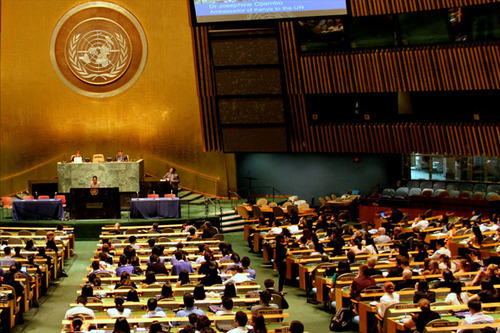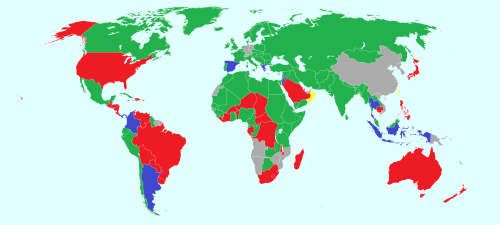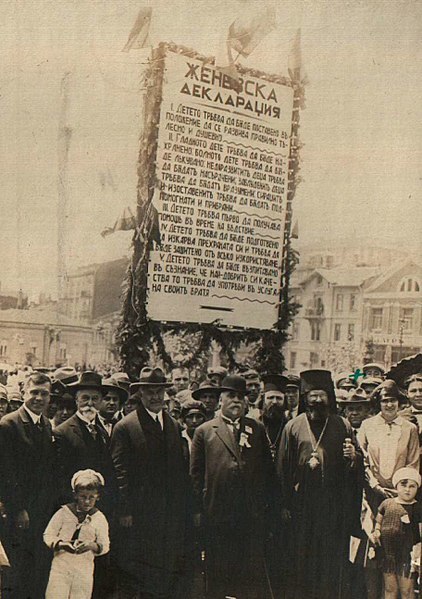#united nations
TODAY IS THE DAY!
by Sandra Khalifa

Geneva, Switzerland – Yesterday, multiple members of the United Nations Human Rights Committee (UN HRC) found Florida’s Stand Your Ground law and similar laws around the country to be “incompatible” with the “inherent right to life” - Article Six of the International Covenant on Civil & Political Rights (ICCPR). ICCPR is an international human rights treaty that the U.S. ratified in 1992. Long considered customary international law, the treaty includes protections such as the right to life, freedom from discrimination, freedom of speech, and many other civil and political rights.
This week, Dream Defenders’ Legal & Policy Director Ahmad Abuznaid joined hundreds of United States human rights groups and advocates to present to the United Nations Human Rights Committee (UN HRC), as well as the Deputy High Commissioner for Human Rights, statements on how implementation of Stand Your Ground laws is rife with racial bias, and how policies like it endanger the right to life and communities of color across the country. This has been especially apparent with the Jordan Davis and Trayvon Martin cases in Florida, among others.
The issue of Stand Your Ground laws was among the few, if not the only issue raised by three different UN HRC members, all questioning the law’s compatibility with international human rights principles. The U.S. delegation, present to respond to questioning by UN HRC members, completely neglected to respond to criticisms regarding Stand Your Ground in their written report. We await their response Friday.
Meanwhile, Florida legislators have been swiftly moving on a Stand Your Ground expansion bill, SB /HB89. The bill has passed out of the House and passed through the Senate Judiciary Committee on the first day of Florida’s legislative session. It would extend immunity under Stand Your Ground to those who fire warning shots at another individual based on subjective fears or perceptions. The bill is ill-conceived and should be reconsidered in light of national, and now international, concerns regarding Florida-type Stand Your Ground laws.
Visit www.dreamdefenders.org/DDATTheUN for resources on the Dream Defenders’ trip to the Geneva, including daily blog posts; Ahmad Abuznaid’s statement to the Deputy High Commissioner; and the Dream Defenders’ shadow report submitted to the United Nations on Stand Your Ground.
by Erik Lampmann

Institutions dedicated to the pursuit of the ‘common good’ will be unable to forge meaningful coalitions, strategize policy interventions, or leverage communities’ collective voices without integrated youth at argue youth at the highest levels of spaces invested with real decision-making power; this applies even to that most storied institution of collaboration, the United Nations.
A full one billion people fall into the category of 15-24 year olds. Our generation is one of the most diverse in human history. We’re polyglot, multicultural, and are connecting with each other across oceans, continents, and time zones. We’ve come of age during a lynchpin movement for the climate justice movement, beneftted from the gains of the LGBTQ+ rights movement, and are ourselves struggling against the specter of the worst economic crisis since the Great Depression.
Any way you spin it, our generation is facing social, economic, political, and ecological hurdles previously unknown. We’re expected to curb decades long bouts of inaction to mitigate the effects of climate change, find some semblance of balance in a chaotic global economic system, and find beauty in the cacophony of our 6 billion voices.
Two weeks ago I had the privilege of spending time with 15 change-agents – 15 American youth who united with one voice in their demand for increased representation in the halls of government, both nationally and internationally.
Working with an American NGO, SustainUS, a youth-organized effort to increase our generation’s representation in international governance spaces, we advocated for a multidimensional policy platform at the 52nd United Nations Commission on Social Development.
It might sound empowering to be in a space so given to the diversity of the human experience. Yet, as many of us learned, many United Nations and the international state system is loath to admit a serious flaw in their understanding of how change happens: the necessity of intergenerational leadership.
The continued underrepresentation of the youth community is not only unjust – it’s strategically unwise given the power landscape of the coming decades, creates leadership gaps, skill mismatches, and unsustainable leadership structures. In fact, many youth change-agents would like nothing else than to engage in intergenerational work that isn’t consigned to continuously remake the wheel each time a new class of organizers graduate college.
Meaningful progress has been made by UN entities and member-states in the past. In December 2012, the UN Population Fund convened the Bali Global Youth Forum to review the Programme of Action of the International Conference on Population and Development Beyond 2014. The frameworks generated by the youth present (as well as thousands of youth delegates participating virtually) were quite progressive and focused a good deal of attention on the sexual and reproductive rights of all youth, including those traditionally marginalized by service providers.
From 2003 to 2005, the government of South Africa included a massive civic society engagement program to facilitate the development of a new Children’s Act that included consultations with children using accessible language and having provided appropriate legislative training.
Some Western European countries have even gone further and established new ‘youth delegate’ positions elected by popular vote. Youth delegates currently represent youth constituencies of countries like Germany, the Netherlands, Romania, Bulgaria, and Belgium with real decision-making power.
As these examples demonstrate, youth are sometimes present in policy-making spaces at the national and international level. There have certainly been occasions where members of the political class decided to include young people in a specific debate. Yet, the systemic validation of youth voices remains lacking in UN spaces. We are too often relegated to ‘side-events,’ NGO speakers’ lists treated only at the end of any formal session, and tokenized by moderators seeking a brief interlude between ambassador’s diatribes. As the world’s premier organization dedicated to building sustainable, resilient democratic spaces, the UN can and must do more in the coming months, years, and decades.
To begin, 2014 will see continued work across the UN system to articulate the Post-2015 Development Agenda, the successor to the Millennium Development Goals (MDGs). Additionally, Secretary Ban Ki-Moon continues plans to scale up his plans for a new Partnerships Facility to build the capacity of NGOs working in concert with various UN agencies, programs, and funds. Given the increasing severity of the global climate crisis, attention will also go to the development of additional Sustainable Development Goals (SDGs) alongside the Secretary General’s “Sustainable Energy for All” Initiative. It’s in these conversations that SustainUS and other youth delegations will look to the UN to center the voices of youth and those directly impacted by policy shortcomings.
All in all, there are a host of impactful policy and framework discussions to come in the next twelve months which have the potential to impact international development practices for years to come. The silo of the youth movement prevents us from leveraging our potential most effectively to address these issues. In short, we’re tired of the kids table; what we need – and what you need – is for us to be at each and every table, fully integrated into the meaningful struggles to leverage our collective, intergenerational power to confront the world’s social ills.
This article was originally published on Sustain US: US Youth for Sustainable Development.

United Airlines
Airbus A319 engine IAEv2500
How UN members voted on Resolution 2758, booting Taiwan from the UN and admitting the People’s Republic of China for the Chinese UN seat. PRC also inherited the permanent veto Security Council Seat. Green in favor, Red against, Blue abstaining, Yellow non-voting, and Gray non-UN members.
Post link
The US invaded Korea first by setting up a collaborationist government against the popular will of the Korean people that forcibly kept alive the horrors, tactics, and even the command of the Japanese occupation. Compare this to North Korea, which not only was given free reign by the USSR to organize their own councils and organization, but which also used land reform and state planning to end landlordism and almost quadruple industry within a few years. Had almost every building in city not been completely bombed and millions murdered, the DPRK would be at an incredible level of development today. It is also important to remember that 20% of the North Korean population were slain by the imperialist lapdogs and that most infrastructure and living areas were firebombed to ashes. It is hard for the imperialist lapdogs such as MacArthur and those who believe in western propaganda to empathize with the North Korean model of democratic centralism, when the possibility of nuking the North Korean people were considered by the US authorities all in the name of neoliberal imperialism. Liberals will praise the United States for devising security laws such as the PATRIOT Act while berating North Korea for its democratic centralism after facing brutal oppression from the imperialist Japanese and the exploitaion by the imperialist Americans.
TLDR: Asians are seen as subhumans by white liberal Americans. They nuked Japan’s civilians. Twice. Still justify both bombings to this day. They wanted to nuke Korea’s civilians. They wanted to nuke Vietnam’s civilians. And people wonder why China is so “aggressive” about protecting itself? Maybe they’ve seen a pattern in history? When will the abhorrent Western imperialism and chauvinism end?
Post link
Well said
The Sun Front Page: August 23, 1987
Click on the newspaper above to get a closer view of the front page.
Post link
In 1977, Orioles third baseman Brooks Robinson officially retired as an active player. Robinson played for the Orioles for 23 seasons – his entire major league career – and 2,896 games. Above, Robinson rounds 3rd after hitting a home run against the A’s in 1971. (Carl D. Harris, Baltimore Sun photo)
1858: Senatorial contenders Abraham Lincoln and Stephen Douglas held the first of their seven famous debates.
1944: The United States, Britain, the Soviet Union and China opened talks in Washington that helped pave the way for establishment of the United Nations.
1959: President Dwight Eisenhower signed an executive order proclaiming Hawaii the 50th state.
1994: On a vote of 235-195, the House approved a $30 billion crime bill that banned certain assault-style firearms.
Compiled by Laura Lefavor and Paul McCardell.
Google Doodle celebrates the 93rd birth anniversary of famous and popular actor Shivaji Ganesan
Google Doodle celebrates the 93rd birth anniversary of famous and popular actor Shivaji Ganesan
Learn About The New Monkey B Virus In China
A Very Short Fact: On this day in 1959, the United Nations adopted the Declaration of the Rights of the Child, an expansion of the document first adopted by the League of Nations in 1924, in an attempt to protect and promote child rights all over the world.
“In addition to direct aid to children and their families, the United Nations has passed resolutions and initiated treaties establishing and attempting to enforce children’s rights. Going far beyond the 1924 and 1959 declarations, the 1989 Convention on the Rights of the Child offered a wide-ranging affirmation that the best interests of the child should guide all policies and decisions regarding childhood. The convention’s forty articles reflect all of the concerns, values, and issues that had swirled around the idea of childhood throughout the previous century, including health, education, freedom of speech and religion, and the right to a name and nationality. The UN’s Committee on the Rights of the Child oversees the enforcement of its provisions. Although the United States was involved in the drafting of the convention, it remained the only nation not to have ratified it as of 2017. Although the convention’s many qualifications made it sound like an agreement among lawyers recognizing the complications of trying to issue dictums applicable to dozens of political and legal systems, it had far more teeth than other efforts to provide protection for all the world’s children.
In addition to primary care programs related to nutrition and health, the UN has worked to eliminate child marriage, provide standards for children’s rights within families and the treatment of refugees, eliminate child prostitution and child pornography, and discourage the exploitation of children in armed conflicts. Despite these efforts, and the decided improvements they brought to millions of children’s lives, economic, military, and environmental conditions keep many children in distress. In 2000 an estimated 100 million school-age children were out of school, 50 million were working in harsh conditions, 30 million were involved in sex trades, 150 million were malnourished, and millions more had been orphaned by or suffered from AIDS.” — From ‘The History of Childhood: A Very Short Introduction’ by James Marten
[Pg. 105-6 — From ‘The History of Childhood: A Very Short Introduction’ by James Marten.]
Image via Wikimedia Commons.
Post link
Here is a photo collage I made in the run-up to Palestine’s bid for statehood at the UN :-)
Post link
Protest happening in Nigeria.
One Nation. One Message. One Demand. = End S.A.R.S Now
Happy international day for biological diversity !
This day was sanctioned by the United Nations in order to promote biodiversity issues. Visit the Convention on Biological Diversity website for more information about the day and possible celebrations in your country.









